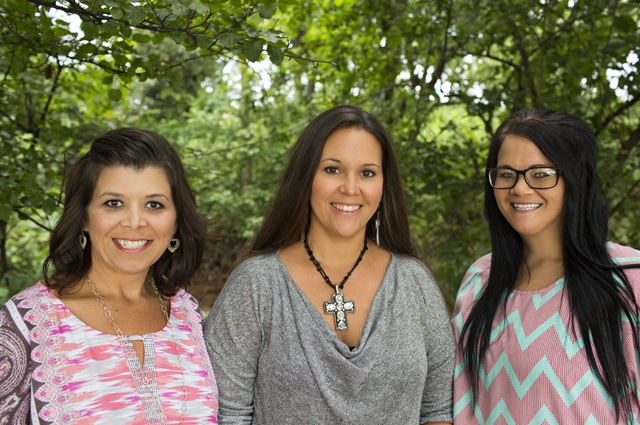
The National Native American Purchasing Association holds an annual conference every spring with an overall goal to educate and support tribal procurement practices, promote cooperation, communication and resource development among Native American organizations, including the Indian Health Service and Bureau of Indian Affairs.
CPN Purchasing Director Stacey Bennett, who is also a member of the organization served as NNAPA Secretary last year, while two fellow CPN employees currently hold elected offices for the group.
NNAPA President Ginger Johnson, Secretary Kami Grissom and Bennett sat down with the Hownikan to answer a few questions about the association and its mission.
What is the National Native American Purchasing Association?
Johnson: “NNAPA is an organization dedicated to promote education regarding purchasing as it is related to the history and culture of Indian Tribes here in the United States.”
Grissom: “We host a conference every year that is customized to fit our training needs for purchasing and contracting among other Native American organizations.”
Bennett: “Seven of us from the Citizen Potawatomi Nation have now attended one or more NNAPA conferences,
and three served in office. Ginger and I were elected to office upon attending our first conference, while Kami was elected during her second. It gives CPN great representation in a highly recognized association.”
What is the group’s mission?
Johnson: “We are here to help each other understand and learn about what can be a unique set of parameters regarding procurement with federally awarded grants and contracts.”
Grissom: “Our mission is to participate and learn about fair, open, equal, loyal and competitive practices as it relates to the history and culture of the Indian Tribes of the United States.”
How is the NNAPA funded?
Grissom: “We are a non-profit and generate what little revenues we have from the conference fees we collect. We have been pretty self-sufficient over the years.
“The Confederated Tribes of Warm Springs Reservation of Oregon gave us our seed money when we first started. Along the way some of the tribal organizations of former board members have provided us with inkind services at times with printing, office supplies, etc., now we pay them, but basically use their credit lines.”
How does your work contribute to the association?
Johnson: “My position is to help guide the organization throughout the year in the process of planning our annual conference. I bring a different perspective to the conference. Being an accounts payable professional for 15 years, I am able to explain and relate a variety of topics during the conferences.”
Bennett: “Attending the NNAPA conference gave me the chance to network with other procurement officials in Indian Country. I also come to the realization that over half of tribes in the United States are a lot smaller than CPN and had a tremendous amount of questions for us on our daily functions and operations.”
Grissom: “This position contributes to the NNAPA board simply by keeping up with what’s going on. My personal addition to the organization this year was by adding social media and just more fun. I thought the best way to do that is social media outreach and by making the experience more enjoyable so people have a good time. I have set up our Facebook account and plan on being able to reach more tribes who don’t know that we exist so that they can participate in our conference training next year.”
Why is this organization important for tribes?
Grissom: “The NNAPA organization is important to tribes across the nation because it teaches and guides our procurement and purchasing departments how to follow the rules and regulations of their individual jobs within the tribal government.
“It is very easy for purchasing to be overlooked when there are so many things going on within a tribe. Each year the topics that are most affecting the tribes at the time are the ones that are the main focus of training. The NNAPA teaches and prepares us for these things and keeps everyone aware of the changes to come.”
Bennett: “The networking we do as tribal purchasing professionals is vital, especially with the largest challenge for our sector in the coming years being the implementation and compliance with the new OMB regulations. At CPN we’ve been working diligently to be in compliance, but we share those experiences with other purchasing professionals and learn from each other.”
The NNAPA’s 2016 conference is in the planning stage right now. It will be held in April of 2016 at Sky Ute Casino Resort in Ignacio, Colorado. To find out more information about next year’s conference visit the National Native American Purchasing Association Facebook page.
